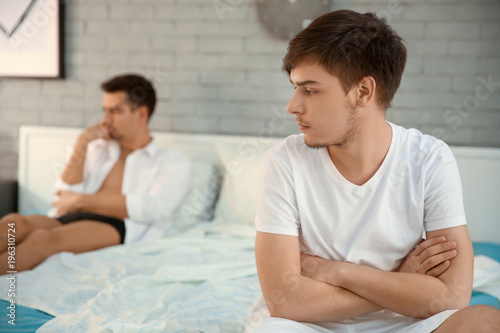Gay dating struggles
Queer men are varying shades of the rainbow. As I lost more weight and gained muscle mass, I began to notice a change in my looks.
- MODERATORS?
- no email gay dating site.
- 10 Reasons Why Gay Dating Is Really Hard | HuffPost!
- Self-loathing among gay people is nothing new. We’re overwhelmed by it?
- men for rent gay escort 937.
- gay nudist dating apps.
- small town/rural gay dating struggles : gay!
I was becoming attractive, to the point where other guys were staring and had lust in their eyes. To say I wish I was a big boy again would not be too far from the truth. At least when I was a big guy, men were more interested in other aspects of me. It seems each tribe comes with its own set of rules for dating. I'm a twink who loves bears Even in this day and age, a gay bar is still a novelty.
Man found guilty of planning terror attack on Cumbria gay event
Straight bars outnumber those geared toward a gay demographic. When I step into a predominately heterosexual establishment, I feel like I have to be on guard and really careful with the people I choose to flirt with. Even on apps, you see the same damn people ALL. HIV impacts everyone, no matter your sexuality, but it's still a hot button issue in the gay community, especially in dating. People are too quick not to go on a date with someone because of their status or will refuse a second date once they find out.
I feel like a lot of twentysomethings, because of immaturity, aren't as informed about the disease and stigmatize it. What if the person I'm with right now isn't the right person for me?
21 Dating Struggles Gay Men Face In Their Twenties
Am I saying no to all the other guys who might be the one I want to spend my life with? I once went on four dates in a day. When you are constantly texting multiple people and don't respond to one, you get the infamous question mark text. You never intended to break someone's heart. It's just a lot.
On one hand, this is kind of great because you get to weed out a lot of clunkers you wouldn't want to spend time with. On the other hand, it sucks because there's less for you to discover from spending actual, in-person time with him. You can be having a great conversation with a guy online, then, at the slightest suspicion that you are a total queen, you are ghosted.
We just need to learn that some guys really are into Britney Spears while others really do love monster trucks, but that doesn't define what they can bring to dating or a relationship. I've been in all three relationships and neither was perfect, but all provided wonderful learning and growth opportunities. Relationship dynamics are unique. The relationship I want with one man is not exactly the same kind I'd want with another. However, this tends to lead to us having crazy expectations for ourselves, and therefore our mates as well.
Everyone is supposed to look like a model, have an Adonis body, be super successful, like everything we like, and fit the molds we've created that no one can ever actually live up to. Dreamboat is ready.
My Spouse Struggles with Homosexuality
His ego is hurt. Add to the fact that gays often date with the seasons, and half the year is either thought of as warm single, and often slutty season, or as a cold cuddling more relationship based time of the year. We forget that we are still animals, and like our furry friends, our bodies change with the tides and seasons in a very natural way.
However, gay men are quick to use the seasons as an excuse to why we are "allowed" to behave in certain ways. We aren't definitely going to have kids, which is why most heterosexual people start to couple up and settle down. And even today straight couples are waiting longer and longer to have children. However, even when we do couple up, the way in which we operate as couples is quite different than straight couples. Add to the fact that a lot of our friends are single, and it becomes almost more normal to be single in the gay world than in a healthy relationship.
We even joke that gay years are like dog years for relationships. And for better or worse, the second something starts to go sour, we have reminders that there are men everywhere. Our social circles are full of these perpetual bachelors, who appear to enjoy their singledom, and constantly question why we are looking to settle down. We all have a friend or two, who claims to love being single, but through candid conversations it become apparent he isn't addressing his deeper wounds from past loves and life. These single gay friends come with their own baggage, and will often project that we too need to sow our wild oats.
Getting married wasn't an option for our community until very recently, so commitment from a legal standpoint was actually far from a lot of our minds. This in some subconscious way made us less serious when it came to dating. It's easier to just keep reverting back to all the other points that making dating hard than it is to try and work on something with someone we thought we really liked. Dating is hard, being in a couple is hard, but it shouldn't be this hard, right? We let our minds drift, we make assumptions, and half the time we aren't even communicating how we are feeling with our partners.
Yes, not all of us are jealous, or at least to an unhealthy point, but going back to issues of shame and insecurity that stem from our youth, we often have a hard time trusting that we are good enough. From this destructive flaw we then end up projecting our neuroses onto our partners, and find ourselves jealous for no reason.
Even if we are lucky enough to find someone special and start dating, jealousy can creep within the relationship. Research suggests that gay men and lesbians have reduced access to medical care because of their fear of discrimination. The constant pressure of dealing with the homophobia of others makes depression, among other mental health problems, relatively common.
While gay and lesbian people are as diverse as the rest of the population, their shared experience of discrimination creates common health issues. Australian society generally regards heterosexuality as the most acceptable sexual orientation, which means that gay men, lesbians and bisexual people may be marginalised and discriminated against. Transgender and intersex people may also experience marginalisation and discrimination in relation to their health and wellbeing.
The previous term for intersex was hermaphrodite. Sexuality and violence A study of gay, lesbian, bisexual and transgender GLBT Victorians found that nearly one in seven reported living in fear of homophobic violence. This fear was justified in that nearly 85 per cent of respondents had been subjected to some form of homophobic violence or harassment in their lifetimes and one in two had experienced homophobic harassment or other non-physical abuse in the past two years.
In eighty-five per cent of cases, violence and harassment were preceded or accompanied by homophobic language. Sexual assault was also common, with nearly 5 per cent having been subjected to this form of violence over the last two years. Among same sex attracted young people, violence and discrimination were also common.
A study of young Australians found that 61 per cent had suffered verbal abuse because of their sexuality, 18 per cent suffered physical assault and 69 per cent suffered other forms of homophobia such as exclusion rumours and graffiti. Homophobia and heterosexism Homophobia means fear of homosexuality. Some people may feel threatened by people who have sexual preferences other than their own. They may express this fear in a variety of ways ranging from subtle discrimination to overt violence.
Heterosexism is the belief that everyone is, or should be, heterosexual and that other forms of sexuality are unacceptable. This belief may underpin a range of areas — for example, health policy, health services, welfare and education services — and can make gay and lesbian people feel invisible. This can have a range of impacts. For example, it may mean that the form you fill in at a medical service may have no place to record that your nominated next of kin is a same sex partner.
If you are a young gay person, you may not be permitted to take a same sex partner to the school formal. Health impacts for gay men and lesbians While many things have improved for gay and lesbian people over the past 50 years in Australia, there is still constant uncertainty about whether they will receive acceptance from families, friends, colleagues and services.

The constant pressure of dealing with this uncertainty has an impact on health. Gay men and lesbians have higher rates of mental health disorders than the rest of the population. They also have higher rates of obesity, smoking and unsafe alcohol and drug use, and are more likely to self-harm. These conditions develop in response to different scenarios including: Gay men, lesbians and health professionals Research suggests that gay men and lesbians have reduced access to medical care compared to heterosexuals.
Some of the issues they face include: The majority of gay men and lesbians have had experience of homophobic health professionals.
Helping Families Thrive™
This may make them less inclined to seek medical help, or they may wait longer before they seek help. Health professionals, particularly in rural areas, may be inadequately informed about gay and lesbian health issues. Gay men and lesbians may be reluctant to have their sexuality recorded in their histories due to the fear that others may gain access to their records. Reduced access to services leads to reduced levels of screening in gay and lesbian populations. This is likely to account for the higher levels of some cancers in these groups.
Gay and lesbian people do not need special medical treatment, but they do need treatment that is fair and appropriate.
What It's Like To Use Dating Apps As a Plus-Size Gay Man
Equity and legal rights for gay men and lesbians Part of the reason gay and lesbian people experience marginalisation is that federal, state and territory laws do not offer gay and lesbian people uniform protection against all forms of discrimination. Prior to these changes, Victorian laws governing such factors as property rights and stamp duty were applicable only to heterosexual couples. In , the Federal government went further and changed 58 laws that discriminated against gay and lesbian people and their families.
